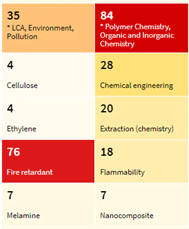
Study by PNO for pinfa analyses development opportunities and data needs for PIN flame retardants in plastics recycling. Nearly 100 publications and patents were analysed, and six research and industry experts interviewed. There is today very little published information on the impacts and fate of FRs in different plastics recycling processes (mechanical, chemical-solvent, chemical-pyrolysis). R&D has concentrated on separation of waste electronics plastics containing brominated FRs, because this is a legal obligation in Europe. The study expects both use of PIN FRs and end-of-life plastics recycling to increase. The main challenges for mechanical recycling are identified to be upstream collection and sorting, and degradation of the polymer itself under reprocessing. Chemical recycling technologies are emerging and will become significant. The study recommends to cooperate with the value chain to develop data and studies on PIN FRs in end-of-life plastics, fate of PIN FRs in different recycling processes, sorting of plastics containing different PIN FRs (including for specific streams such as end-of-life batteries), separation and recycling of PIN FRs in chemical recycling processes.
“A study of the state-of-the-art and Impact of Phosphorus, Inorganic and Nitrogen Flame Retardants (PIN FRs) on recycling, taking into account the current and upcoming, legislation, policies, technologies and market developments”, PNO for pinfa, 2022. For more information please contact pinfa. Figure: extract from research literature search heatmap.